The "Digital Literacy for All" movement was initiated with the spirit of not only teaching literacy, but also teaching digital skills; not only expanding knowledge but also expanding opportunities for human development in the new era.
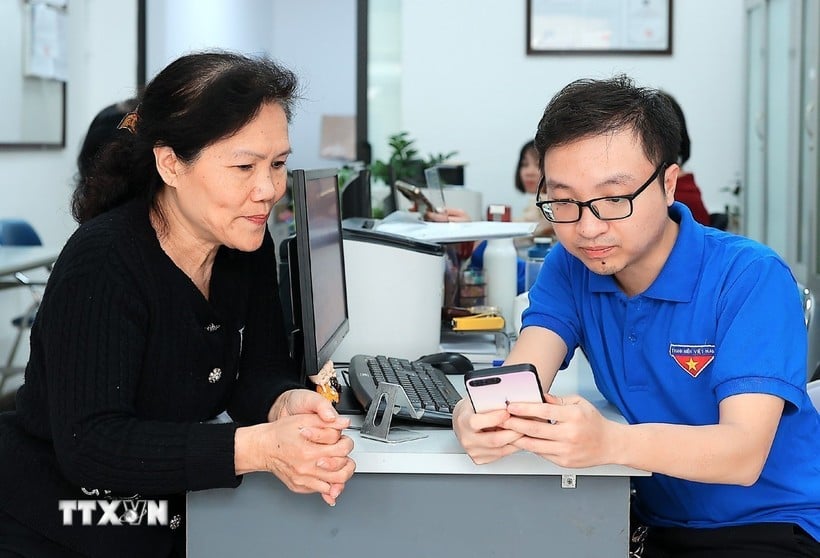
In September 1945, just a few days after gaining independence, the Provisional Government of the Democratic Republic of Vietnam launched three major movements: "Eliminate hunger, eradicate illiteracy, and eradicate foreign invaders."
The "Popular Education" movement became the largest literacy movement in the nation's history, helping millions of Vietnamese people learn to read and write, opening a new era of knowledge and national autonomy.
80 years later, in the digital age, when technology has become the language of life and digital competence is a condition for participation in modern society, the Party and State have initiated the "Digital Literacy for All" movement with the spirit of inheritance but beyond the scope: Not only teaching letters, but also teaching digital competence; not only expanding knowledge but also expanding opportunities for human development in the new era of the nation.
At a class on "digital literacy" in Hai Ba Trung ward (Hanoi city), Mr. Le Nhu Quang was excited when the members of the ward's youth union and shock force team instructed him on how to use and operate technology related to artificial intelligence.
“With just a small phone, I can know the information in the country and the world . We also do not need to go to the place to do public services anymore. If this movement is popularized to the whole population, it will be extremely meaningful in the country's digital transformation process," Mr. Le Nhu Quang shared.
In a small house in Duc Hop commune (Hung Yen province), Mr. Bui Tuan Duy excitedly shows off his smartphone that has just been installed with the VNeID application.
“Now, when going to the doctor, all you need to do is scan your ID card and you don’t need to bring any documents like before. At first, I was still struggling, but thanks to the enthusiastic guidance of the youth union members in the digital technology group, I was able to do everything,” said Mr. Bui Tuan Duy.
Those simple stories are a microcosm of the “Digital Literacy for All” movement, launched nationwide on March 26, 2025, where the lifelong learning spirit of the “elimination of illiteracy” movement is renewed in the technological era.
Implementing the program "30 peak days of implementing the Digital Education Movement" in Hung Yen province in 2025 (from July 7 to August 7, 2025), the Provincial Youth Union has established more than 1,000 youth volunteer teams with over 20,000 union members and young people participating. Union members and young people actively guide people to use online public services at commune-level public administrative service centers. 686 "Digital Education" youth volunteer teams have been launched and maintained effective operation; 200 "Digital Education" classes have been organized directly and online, each with about 150 participants.
The classes focused on disseminating basic digital knowledge and skills; providing guidance on using smart devices, social networks and accessing online public services.
In particular, the teams also support people and businesses to bring their products to e-commerce platforms, from creating booths to sales skills and promoting products. In addition, people are also guided on information security, preventing online fraud and identifying bad and toxic information on the internet.
Mr. Thieu Minh Quynh, Secretary of the Hung Yen Provincial Youth Union, said: “The “Digital Literacy for All” movement is an innovative way to help people not only know but also proactively use technology in their lives. In Hung Yen, 100% of villages and residential areas in the province have established youth teams to pioneer digital transformation, with a total of more than 20,000 youth union members participating.
This force is the core force supporting the local government, accompanying and supporting people in accessing and effectively using digital platforms." Also according to information from the Department of Science and Technology of Thai Nguyen province, in Official Dispatch No. 361/SKHCN-CĐS dated July 31, 2025, the whole province has established 92 community digital technology teams in all communes and wards in the area. Each team includes "one-stop" department staff, mass organizations (Youth Union, Women's Union, Farmers' Association...) and young volunteers, responsible for "going to every alley, knocking on every door", supporting people to install applications, submit online applications, use e-commerce and digital public services.
The community digital technology group is not only a “bridge between the government and the people” but also a true digital literacy classroom, where technology becomes a common activity in life.
Data from the Department of Science and Technology of Thai Nguyen province shows that as of September 2025, the whole province has received more than 135,000 administrative procedure records, of which more than 117,000 records were submitted online, accounting for 86.94%, much higher than the national average of 68.48%.
The activities of the community digital technology team also created a strong shift in the application of public digital signatures: 540,000 people have been issued, reaching 80% of the planned target. The C-ThaiNguyen application - the province's digital citizen platform - has had more than 450,000 downloads, receiving nearly 4,800 feedbacks, helping to increase transparency and efficiency in e-government operations.
In addition, the "People learn AI" movement in Thai Nguyen province also attracted about 400,000 participants, guiding people to get acquainted with and apply artificial intelligence in life and production.
Initiatives and activities to support local people's access to technology have been helping people learn basic skills as well as access high technology.
At the launching ceremony of the movement and the launch of the "Digital Education for All" platform, which took place on the afternoon of March 26, 2025 at Hanoi University of Science and Technology, Prime Minister Pham Minh Chinh affirmed: If we perceive science, technology, innovation and digital transformation as objective requirements, strategic choices and top priorities in the current revolutionary period, we cannot help but mention digital society, digital nation and comprehensive digital citizens; from there, it is impossible not to have the "Digital Education for All" movement.
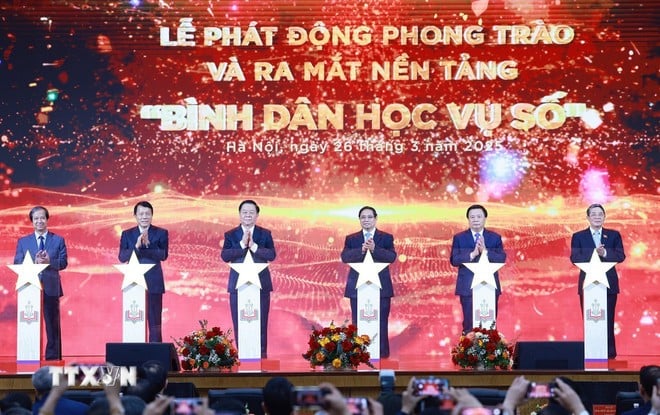
From the movement to "eliminate illiteracy: Popular education" to the movement "Digital Popular Education", our Party and State have given a clear and specific direction. That is, the movement "Digital Popular Education" must become a revolutionary, all-people, comprehensive, encompassing, and far-reaching movement.
Many experts also believe that "Digital Literacy for All" will only be truly successful when people consider digital learning a natural need, like literacy in the past; it is necessary to form a digital culture as a lifelong learning habit.
Popularizing digital knowledge
The Central Propaganda and Mass Mobilization Commission has coordinated with the Ministry of Science and Technology and relevant agencies to advise on the issuance of Plan No. 01-KH/BCĐTW on implementing the movement. This is an important basis for implementing the movement nationwide.
On that basis, 100% of ministries, branches and localities have developed specific action programs.
After adjusting administrative boundaries, provinces and cities quickly completed the Steering Committee, established Working Groups, issued new plans, ensuring continuity and consistency in implementation.
The local launching ceremonies were solemnly organized, combining live and online events, connecting to thousands of grassroots points. The presence of leaders of Party committees and authorities at the events created a strong communication effect, spreading the message: Learning digital skills is not only a right but also a civic responsibility in the new era.
On April 29, 2025, the Ministry of Science and Technology issued Decision No. 757/QD-BKHCN establishing the Basic Digital Knowledge and Skills Framework, along with Guidelines for assessing and confirming the completion of the level of digital skills popularization. This framework is built based on international references and is suitable for Vietnamese practice, making it "easy for people to learn, easy to understand, easy to follow."
On that basis, the Ministry of Education and Training has compiled short, practical, and life- and work-related learning programs. Learning materials are produced in many formats: Text, images, videos, audio lectures - serving both teachers and learners. The National Assembly also quickly built a National Assembly Digital Knowledge and Skills Framework with 4 levels (Basic - Intermediate - Advanced - Advanced), contributing to the formation of a modern, professional "Digital Parliament".
In particular, the “Digital Education for All” platform developed by the Ministry of Public Security has become the central tool of the movement. On this platform, people can study anytime, anywhere, authenticated with VNeID accounts, automatically issued certificates and stored personal learning data.
The Ministry of Science and Technology is also developing an AI-powered learning virtual assistant that helps personalize learning content and methods, turning the learning process into a smart, interactive experience.
Across the country, many innovative models have been formed, creating an exciting learning spirit in the community such as: "Digital Family" in Hai Phong, Lam Dong with the motto: Each household has at least one member who is knowledgeable about technology to guide relatives; "Digital Market - Digital Countryside" in Quang Ngai, Tuyen Quang, helping small traders and farmers access e-commerce, cashless payments, selling via livestream, using QR to trace the origin of agricultural products; "Digital Youth Volunteers" in Da Nang, Thanh Hoa helps mobilize tens of thousands of union members to support people in remote areas to use digital services, install VNeID, and provide network safety instructions.
The “Digital Literacy Journey” (Khanh Hoa) has brought mobile vehicles to mountainous communes to teach digital skills to people. “Each member - A digital instructor” (Lai Chau) helps spread knowledge in mountainous and ethnic minority villages. The “Soft ATM” model (Lang Son) is an initiative to support digital finance at the commune cultural post office, helping people in remote areas access electronic transactions.
These models not only spread digital knowledge but also foster community spirit, arouse social responsibility and humanism in the technological age.
A prerequisite for developing the "Digital Education for All" movement is digital infrastructure.
According to the Radio Frequency Department, Ministry of Science and Technology, by the end of June 2025, the 4G coverage rate reached 99.8%; more than 12,000 5G stations had been deployed in all provinces and cities; 12 million 5G subscribers were active; more than 1.2 million km of fiber optic cable had covered all communes and wards; 85% of households used fiber optic cable.
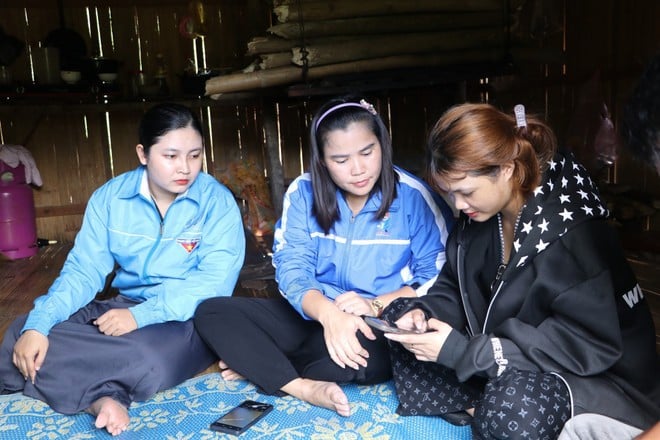
Thanks to this quality digital infrastructure, by the end of June 2025, the proportion of officials, civil servants, public employees, and workers in the public sector with knowledge of digital transformation, digital skills, and the use of digital platforms and services will reach or exceed 80%. The proportion of students equipped with digital knowledge and skills and cyber security capacity will reach 100%.
The proportion of adults with basic knowledge of digital transformation, knowing how to use smart devices, accessing digital platforms and services, and knowing how to protect themselves in cyberspace also reached nearly 80%. Many localities such as Ha Tinh, Can Tho, Quang Tri, Da Nang, Lam Dong, etc. have become bright spots with flexible ways of working, linking movement activities with socio-economic development tasks.
“Digital literacy for all” is truly a practical policy with profound humanity, not only helping people access technology but also improving their autonomy, creating equality in development opportunities for everyone.
Self-improvement to adapt to the new era
However, the report of the Central Propaganda and Mass Mobilization Commission pointed out that despite achieving many positive results, the movement still faces many difficulties such as: digital infrastructure is not yet synchronized in some mountainous and island areas, transmission quality is still limited; financial resources and technology human resources at the grassroots level are still thin, most IT staff hold concurrent positions.
The fear of change still exists in a segment of the population, especially the elderly and manual workers. The standardization of textbooks and sample learning materials for each target group still needs to be completed.
To make the movement truly sustainable, the Central Propaganda and Mass Mobilization Commission has identified 7 key groups of tasks in the last months of 2025. These are: strengthening leadership, direction, perfecting mechanisms and policies; including the criteria of "Digital Education for All" in the resolution on local socio-economic development; promoting propaganda, organizing activities to honor digital learners and instructors; expanding multilingual documents, including ethnic minority languages.
The Propaganda and Mass Mobilization Committee also clearly stated the task of popularizing digital skills for four main groups: civil servants, students, workers and people; forming a network of "community digital instructors"; developing electronic learning materials and national online learning platforms (MOOCs), integrating VNeID for identification, authentication, and automatic assessment; replicating effective models: Community Digital Technology Team, Digital Family, Digital Market, Digital Ambassador, Youth Volunteers for Digital Transformation; enhancing network safety and security, preventing fake news and online fraud...
The "Digital Literacy for All" movement is not only a program to popularize skills, but also a large-scale social movement - where each citizen is inspired to learn, be creative, and improve their own capacity to adapt to the new era.
“Digital literacy” is a learning movement that promotes the spirit of innovation in Vietnam in the digital age, and is the task of every Vietnamese citizen in the digital age. As General Secretary To Lam emphasized at the Symposium: Digital literacy - Digital National Assembly: Framework of digital knowledge and skills for the modern National Assembly: “Improving digital knowledge for officials, civil servants and citizens must be an important task, closely linked to administrative reform and socio-economic development.
The “Digital Literacy for All” movement must become a revolutionary, all-people, comprehensive, inclusive, and far-reaching movement. Each party member, cadre, and civil servant must be a pioneer and exemplary participant in learning digital skills and transforming working methods to suit the digital age”./.
Source: https://baolangson.vn/phong-trao-binh-dan-hoc-vu-so-nang-cao-tri-thuc-viet-trong-ky-nguyen-moi-5061326.html


![[Photo] Prime Minister Pham Minh Chinh chairs the Conference to deploy the National Target Program on Drug Prevention and Control until 2030](https://vphoto.vietnam.vn/thumb/1200x675/vietnam/resource/IMAGE/2025/10/09/1759990393779_dsc-0495-jpg.webp)

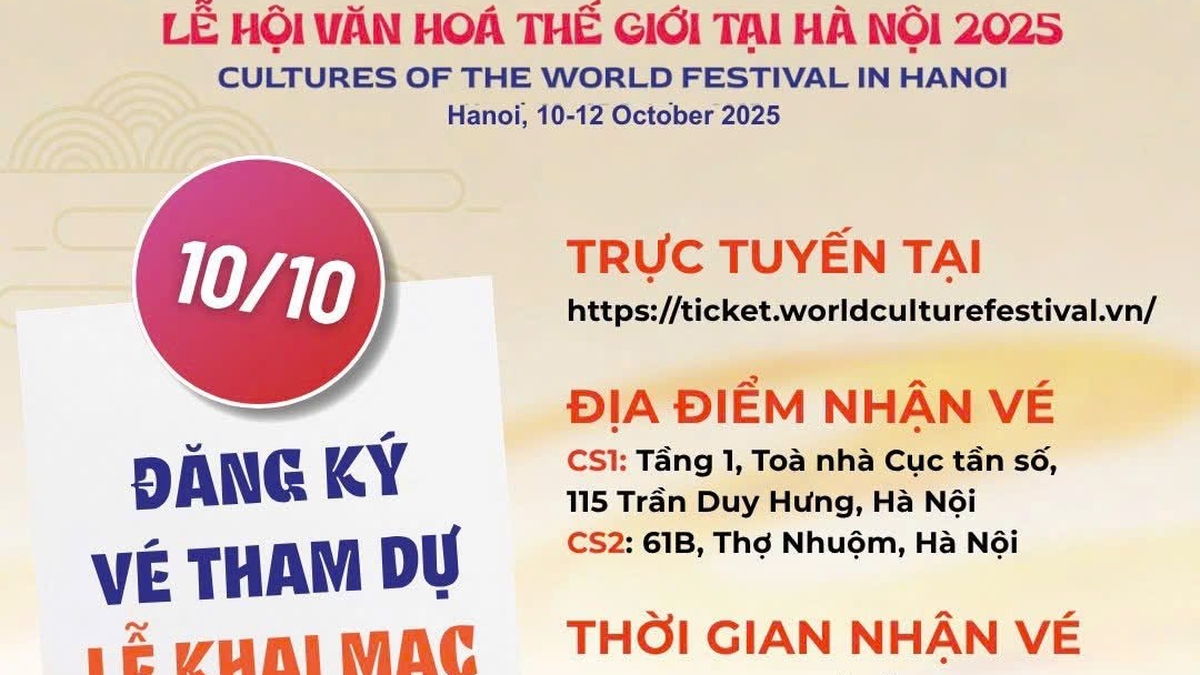
![[Photo] Prime Minister Pham Minh Chinh chairs a meeting of the Government Standing Committee on overcoming the consequences of natural disasters after storm No. 11](https://vphoto.vietnam.vn/thumb/1200x675/vietnam/resource/IMAGE/2025/10/09/1759997894015_dsc-0591-jpg.webp)


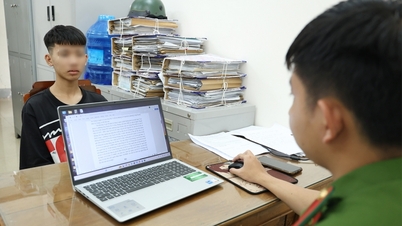

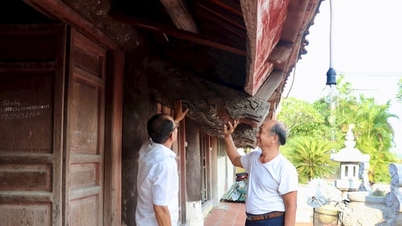

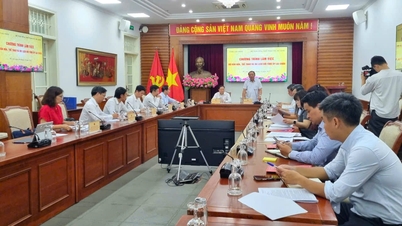

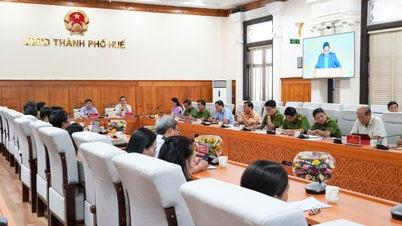

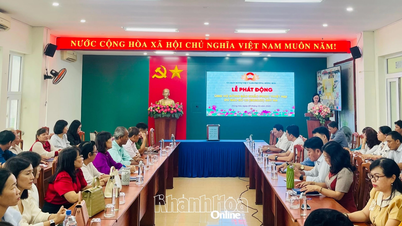

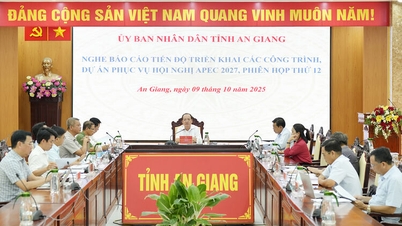




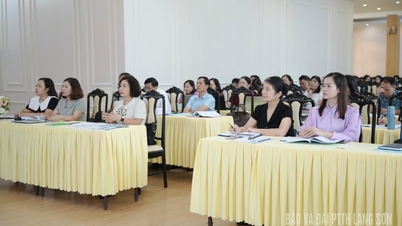
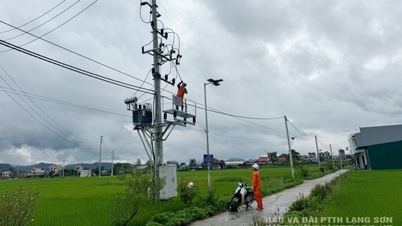
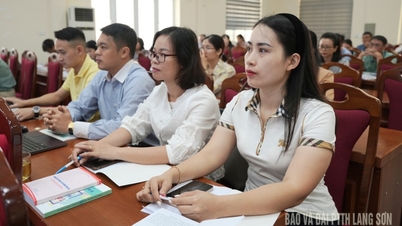
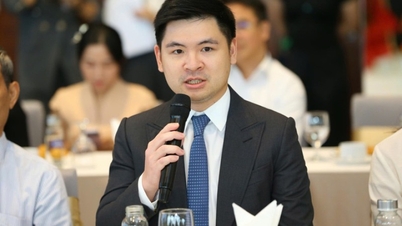

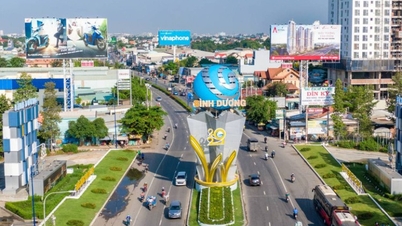









































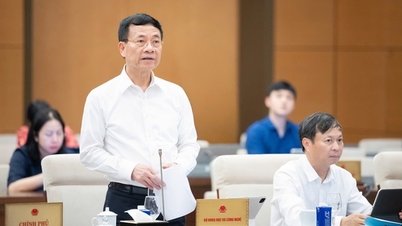

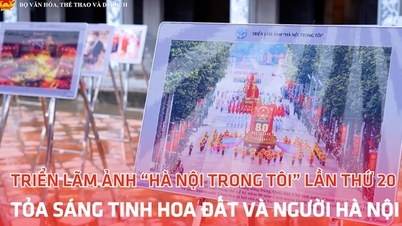


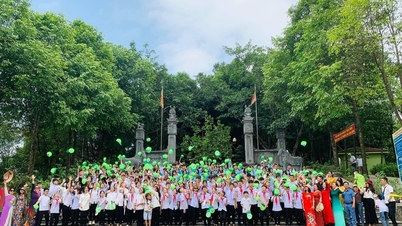

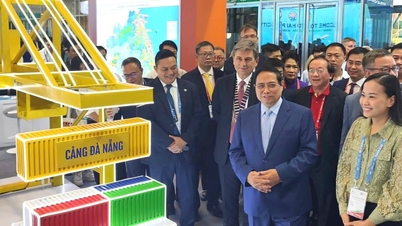
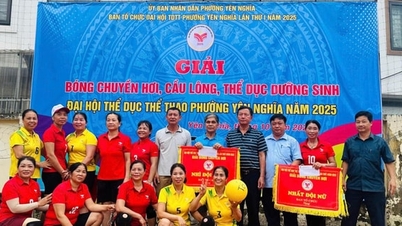
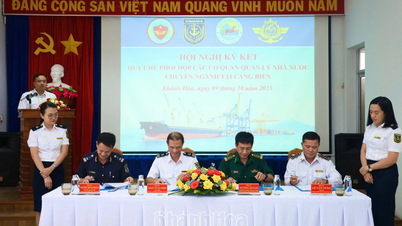
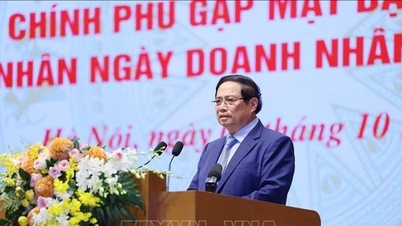















Comment (0)